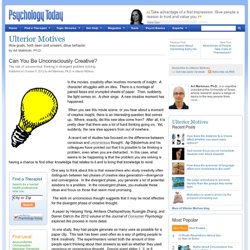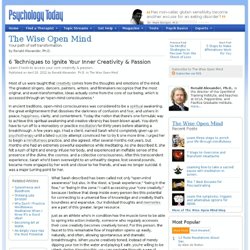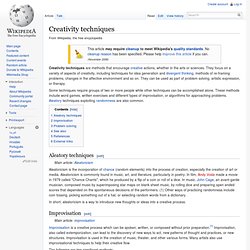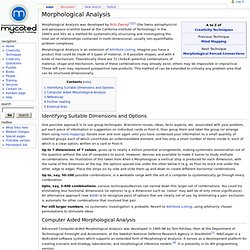

Inside the Box. LeanUX is a Useful F*&king Lie. Is There Any Meat on This Lean UX Thing? By Jared M.

Spool Originally published: Nov 30, 2011 Out of nowhere, Lean UX is now a hot topic for UX professionals, generating the complete range of responses, from complete buy-in to calling it complete bulls**t. Is there really something to this? Or is it, as I've heard several times now, an attempt to rebrand what we already do in the name of selling more workshops? I was very curious about all this, so I set out to learn what Lean UX was all about.
My conclusion: There really is something here. Step Into the Wayback Machine, Sherman To get a solid handle on why I think Lean UX is now important, we have to go way back into the past—to the 1960s and 1970s. However, as people found new uses, the size of the software projects grew. To keep everything under control, the field of software engineering started to emerge and one of its biggest contributions at that time was a management technique known as the Software Development Life Cycle. Fast Forward: The Business Takes Control.
Anti-brainstorming. Página de inicio de Mozilla Firefox. Where do ideas come from? The 7 Habits of Highly Playful People. Social Innovation. Margaret Heffernan: Dare to disagree. Startups. Innovation. Kevin Systrom, Instagram - Mike Krieger, Instagram - From Stanford to Startup. Can You Be Unconsciously Creative? In the movies, creativity often involves moments of insight.

A character struggles with an idea. There is a montage of pained faces and crumpled sheets of paper. Then, suddenly, the light comes on. A choir sings. A new creative moment has happened. When you see this movie scene, or you hear about a moment of creative insight, there is an interesting question that comes up. A recent set of studies has focused on the difference between conscious and unconscious thought.
One way to think about this is that researchers who study creativity often distinguish between two phases of creative idea generation—divergence and convergence. The work on unconscious thought suggests that it may be most effective for the divergent phase of creative thought. Collections - Google Art Project. Your Creative Flow. The 100 Most Creative People in Business 2012. Alcohol Benefits the Creative Process. Creative thought is something we often aspire to.

SWOT analysis. TED: Ideas worth spreading. Tracking Wonder. 6 Techniques to Ignite Your Inner Creativity & Passion. Most of us were taught that creativity comes from the thoughts and emotions of the mind.

The greatest singers, dancers, painters, writers, and filmmakers recognize that the most original, and even transformative, ideas actually come from the core of our being, which is accessed through an "open-mind consciousness. " In ancient traditions, open-mind consciousness was considered to be a spiritual awakening, the great enlightenment that dissolves the darkness of confusion and fear , and ushers in peace, happiness , clarity, and contentment. Today the notion that there's one formulaic way to achieve this spiritual awakening and creative vibrancy has been blown apart.
You don't have to run off to a monastery or practice meditation for thirty years before attaining a breakthrough. Recursive Incentive Scheme to Get Lots of Help in a Hurry. Trying to get a large group of people help you in a task is sometimes called "crowdsourcing. " There are several accepted strategies for doing this, but a recent study reported in Science by Galeb Pickard and six colleagues at a M.I.T. media laboratory reveals an approach that seemed to work when they had to complete the task in a hurry.
As they point out, gettting crowdsourcing accomplished in a hurry is particularly relevant to such practical common problems as search-and-rescue operations, tracking an outlaw on the run, managing public health responses in a disease outbreak, and even promoting the candidacy of a political candidate. The spur for this research was a contest sponsored by the Defense Advanced Projects Research Projects (DARPA).
Creativity Techniques. Should Everyone Be Creative? If You Are Creative, Are You Also Intelligent? According to an article in Newsweek , here in the United States we apparently have a creativity crisis . According to Kyung Hee Kim at the College of William and Mary, scores on the Torrance Test of Creative Thinking have been decreasing since the 1990's.
The same article mentions that China is making a push to move away from rote memorization and adopt a more problem centered learning approach, perhaps like that of America. Contrast this with the results from the Program for International Student Assessment (PISA), which examines 15-year-old students in 65 countries. The U.S. scored about average in science, above average in reading, and below average in math. Thinkertoys: cómo desarrollar la creatividad en la empresa - Michael Michalko. Creativity techniques. Creativity techniques are methods that encourage creative actions, whether in the arts or sciences.

They focus on a variety of aspects of creativity, including techniques for idea generation and divergent thinking, methods of re-framing problems, changes in the affective environment and so on. They can be used as part of problem solving, artistic expression, or therapy. Some techniques require groups of two or more people while other techniques can be accomplished alone.
These methods include word games, written exercises and different types of improvisation, or algorithms for approaching problems. Aleatory techniques exploiting randomness are also common. Aleatory techniques[edit] Essential Resources for Creativity (163 techniques + 30 tips + books!) Morphological Analysis. From Mycoted Morphological Analysis was developed by Fritz Zwicky[1][2] (the Swiss astrophysicist and aerospace scientist based at the California Institute of Technology) in the 1940's and 50's as a method for systematically structuring and investigating the total set of relationships contained in multi-dimensional, usually non-quantifiable, problem complexes.

CreativityRulz. Www.talentmanager.pt/download/SystemicThinking.pdf. Don't Shut Down Other Lines of Thought. How Geniuses Think.